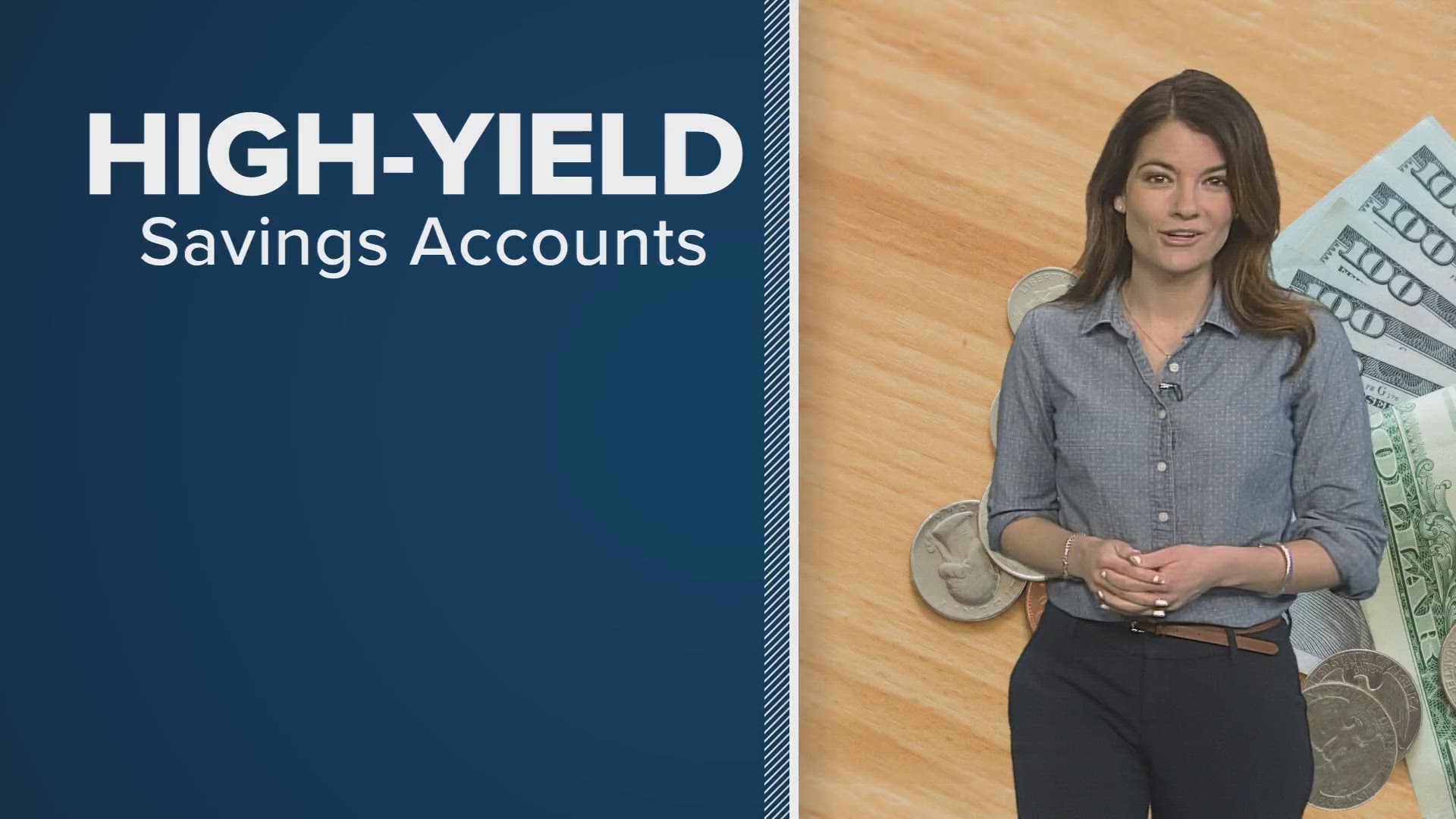INDIANAPOLIS — After a slow start, banks are finally paying customers higher interest rates. So, if your savings are parked in the wrong spot, you could miss out on free money.
That is because rising interest rates are good for savers, according to Bankrate's Greg McBride.
"You can do significantly better by moving that cash to a place where it's going to be welcomed with open arms and higher yields," McBride said.
That's where high-yield savings accounts enter the chat. Right now, they're paying around 4%, or a lot more than checking accounts.
"Most checking accounts pay little or nothing in terms of interest, even interest checking accounts often pay a fraction of 1%," McBride said.
For example, we found a common joint checking and savings account paying .03% in interest.
That percent, .03%, on $1,000 is $0.30. Four percent of $1,000 is $40.
"How do they compete with the big boys? They're not going to be able to out-market them," McBride said. "Instead [they're] paying a higher rate of return on things like savings accounts."
Money in a high-yield savings account is easily accessible and insured.
If your emergency fund is all set and you don't need the money soon, you can look to certificates of deposits.
"Yields on certificates of deposit are the highest in about 15 years, if you're shopping around," McBride said.
For CDs, banks hold onto your money for a period of time anywhere from three months to years.
Right now, a one-year CD is paying up to 5.25%. But pull out the money sooner and penalties apply.
There are also government bonds, but each work differently and, like CDs, usually lock up your money.
But whatever tool you use, remember, saving is a habit.
To make it easy on you, set up a second direct deposit that goes directly to your savings.

